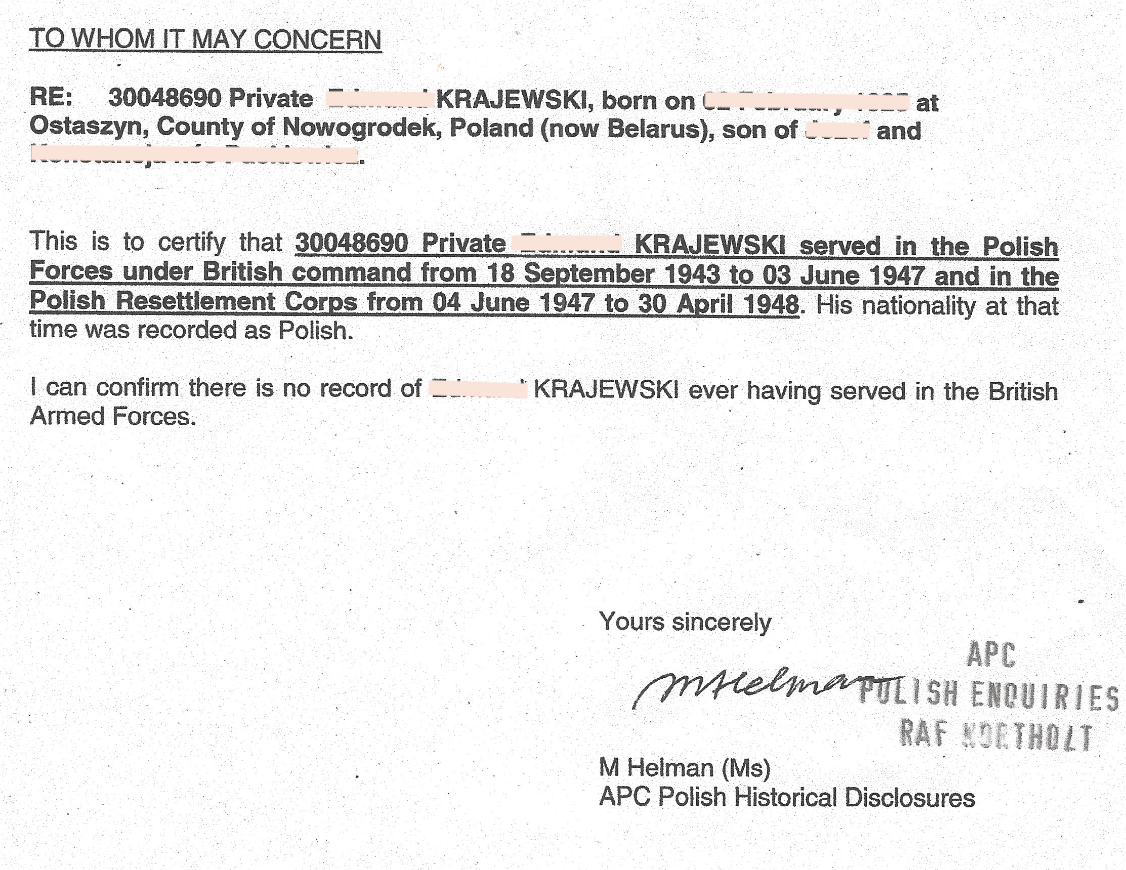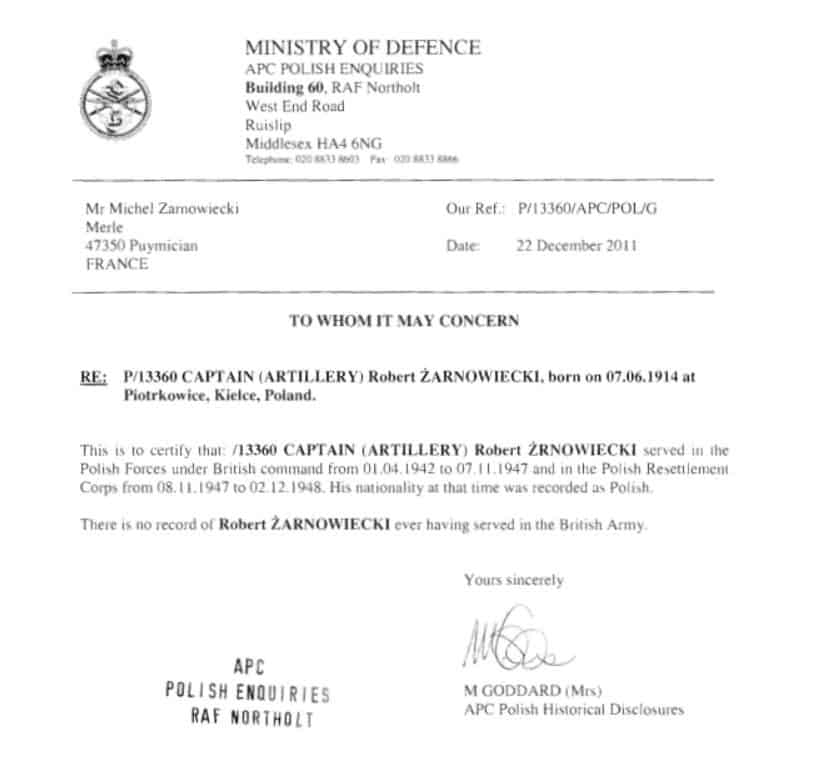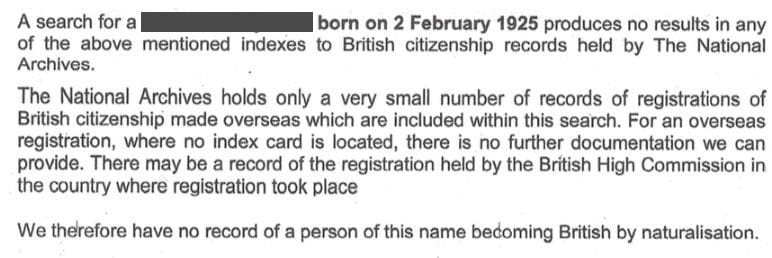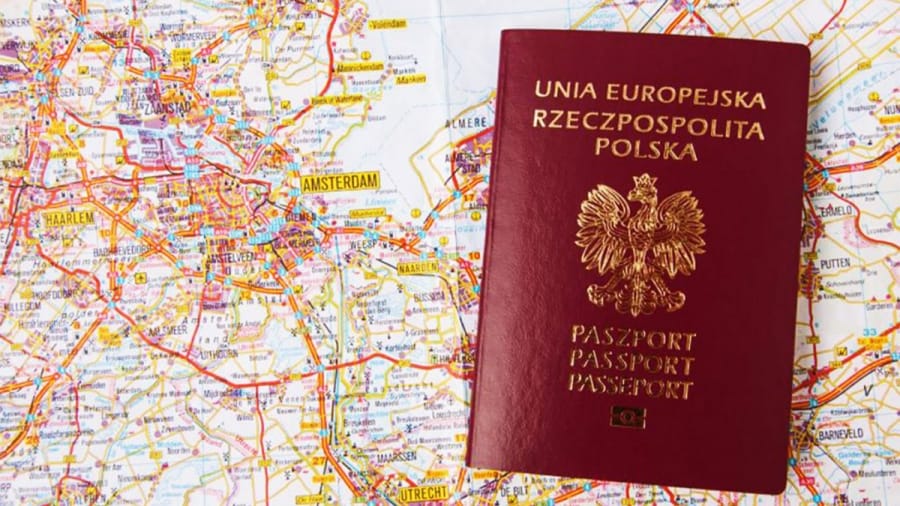It is with pleasure that I am able to share my own experience with getting Polish citizenship by descent through Lexmotion – a friendly legal team of Polish citizenship experts based in Kraków, Poland.
There are numerous ways to get Polish citizenship. Some of the most common routes include naturalisation by residence. Another common way is through marriage to a Polish citizen for a period of at least three years, providing that the foreigner has lived in Poland legally for at least two years. In this article, I go into one increasingly common method to get Polish citizenship – by descent.
This post might be particularly useful for British people with Polish ancestry who wish to maintain the privileges connected to possessing an EU passport.
Who has a right to get Polish citizenship by descent?
Polish citizenship is obtained by “right of blood”, and is passed from parent to child automatically at birth, regardless of which country a child is born in. If you have a Polish ancestor somewhere in your family line, you most likely qualify for Polish citizenship. Some cases are really straightforward and people receive their confirmation of citizenship and passport within a few months.
I did not possess my grandfather’s passport and birth certificate. Hence, I was a little nervous at the start of the application process. However, as I wrote about in a post about becoming a Polish citizen by right of blood, a birth certificate is tied to the ‘rule of land’ (birthright citizenship) – not the rule of blood. Hence, there are plenty of alternative documents to trace. Barring a few bureaucratic errors on the part of one or two institutions, my case turned out to be quite a straightforward one.
At the beginning of December, 2017, I began to make plans with my wife to move to Poland. Hence, gaining Polish citizenship by descent through Lexmotion was my main goal. I knew that having a Polish passport/ID card would certainly help me when it came to renting a flat, buying real estate and helping my wife to eventually get permanent residence and citizenship more quickly.
Anyhow, I started to become quite involved in the process of creating my family tree and learning about my roots. I even went to the lengths of hiring an archivist to find out some more information about my grandfather. This archivist also found out some things about my grandfather’s siblings and my great-grandparents.
I found out that my grandfather was born in a village called Bojary, now in modern-day Belarus.
What does Lexmotion’s free eligibility check look like?
Concerning my eligibility for Polish citizenship, Lexmotion put the following questions to me in order to carry out a free eligibility check:
- When were you born?
- Were you born in wedlock?
- When and where was your father born?
- Was your grandfather an adult person when he emigrated from Poland or did he emigrate with his parent(s) as a minor?
- Did your grandfather serve in a foreign army (not Polish) before January 1951 (it concerns either active duty or reserve)?
- Did your grandfather hold public office (not in Poland) or was a teacher before January 1951?
- To prove your Polish origin, we will need Polish documents (passports, IDs, army books, vital records, etc.)
I spent a few weeks corresponding with Lexmotion as I had plenty of questions. Eventually, the following news reached me via email:
I am pleased to inform you that based on the information you have provided you (and your siblings, children) can apply for the Polish Citizenship Certificate (provided you or your ancestors did not renounce Polish citizenship).
Which documents are required to get Polish citizenship by descent through Lexmotion?
Lexmotion then asked me to track down documents which proved “right of blood”. Here is the email they sent me with a list of potential documents:
To get Polish Citizenship Certificate we have to prove that your ancestors were Polish citizens. It is very important, therefore I kindly ask you to send us scanned copies of Polish documents which you possess, especially:
- Polish ID (Dowód Osobisty);
- Polish passport (Paszport Rzeczpospolita Polska);
- Documents from the Polish Army – Military Identity card (Książeczka Wojskowa) and Polish book of military records (Zeszyt Ewidencyjny);
- Entry in the conscript list (Spis Poborowych);
- Population census (Spis ludności, rejestr ludności);
- Entry in the voter list (Lista Wyborcza);
- Registration card (Karta meldunkowa);
- Notarial deed (Akt notarialny);
- Certificate about holding public office;
- Re-emigration registration card (karta rejestracyjna reemigracyjna);
- Other documents issued by the Polish government;
- Polish vital records.
As previously mentioned, I didn’t have a copy of my grandfather’s passport and birth certificate. However, I was able to get a copy of his Death Certificate (Akt Zgonu) from the district in London in which he died.
As I understand it, provided that an applicant possesses the death certificate of their Polish ancestor/s, their parents’ marriage certificate and their own birth certificate, then the entire kinship in two generations is perfectly described.
At the start, I was afraid that I would fail with my application because I was thin on documents. Rather desperately, I asked Lexmotion whether they were able to trace copies of vital records in the appropriate Belarusian archives. Understandably, they were not able to fulfil such a request.
Vital records, administrative records and auxiliary documents which may verify your Polish citizenship status
Further information prepared by Lexmotion concerning the documents required to obtain Polish citizenship can be found in four separate posts on the company’s blog:
Part 1 – An overview of the documents required to obtain Polish citizenship by descent
Part 2 – Documents which prove Polish descent
Part 3 – Proving kinship with vital records
Part 4 – Auxiliary documents which recreate your Polish ancestors’ history
I’ve also interviewed a top historian and Polish Citizenship Specialist regarding the documents which may verify your Polish citizenship through ancestry. Be sure to check out this interview.
Did your grandfather fight in the Polish Army under British command?
I had to prove that my grandfather did not lose Polish citizenship.The main ways he could have lost Polish citizenship were by leaving the Polish army to join the British army after the Second World War, or accepting a “public office” in another country. Hence, I turned soon my attention towards obtaining a copy of my grandfather’s book of Polish military records (“Zeszyt ewidencyjny”). This book validates citizenship.
Many Polish soldiers who took part in Allied operations against Nazi Germany in the West actually fought in the Polish Army UNDER BRITISH COMMAND. Even though Polish soldiers fought alongside British soldiers under British command, they were still classed as being in the Polish Army. So, the documents which the Ministry of Defence (MOD) sent to me in the post proved that my grandfather did indeed fight under British command. Technically, he never “left” the Polish Army. In June 1947, my grandfather joined the Polish Resettlement Corps (PRC), an organisation formed by the British Government in 1946. The PRC was set up to ease members’ transition from military into civilian life in Great Britain. Members of the PRC were still military personnel and subject to British military discipline and military law. Anyway, here’s the main part of the letter from RAF Northolt confirming that my grandfather never served in the British Armed Forces:

How can you apply for a relative’s Polish military records in the UK?
To apply for a relative’s Polish military records in the UK, contact the MOD at this address:
APC Polish Enquiries
Building 60, RAF Northolt
West End Road
Ruislip
Middlesex
HA4 6NG
Tel: 0208 833 8603
I dealt with a lady called Margaret Goddard via telephone – a very helpful and kind soul.
When you write to the MOD to request your relative’s military records, you will need to include some proof that you are related to the Polish ancestor in question.
I ended up sending a picture of my grandfather’s grave to Mrs Goddard via email. This was because I didn’t have his birth certificate, and I was still waiting for a copy of his death certificate. I applied for the documents just before Christmas, 2017, and received them just after the new year.
I had little doubt that The Polish Enquiries team at RAF Northolt were handling hundreds of similar cases to mine at that time. For my own peace of mind, however, I sent them an example document, which my lawyers sent to me, to make sure I’d get it in writing that my grandfather did not serve in the British Army. Take a look at this documnt:

If the people at RAF Northolt cannot do much for you, or you would like to track down a more exhaustive set of military records, check out this list of institutions which hold information on Polish military personnel records or specific combat units.
Rules regarding military service and the loss of Polish citizenship
If your relative performed military service in a foreign army between January 31, 1920, and January 18, 1951, they would have lost their Polish citizenship.
Nevertheless, it’s vital to emphasise the main exception to this rule as established by the Polish judicial authorities. Namely, if your relative served in any of the allied armies (Britain, France, the USA after Pearl Harbour and the USSR after Operation Barbarossa) in the Second World War, they would not have lost their Polish citizenship. This law also applied to the period after the end of the war until demobilisation.
The main reasons for loss of Polish citizenship regarding military service are still:
1. The Korean war – Polish-American soldiers who served before 1951. The army in question (USA) did not have a common goal with the Polish military and Polish state. Poland actually supported the north Koreans as Poland was a Soviet puppet state at that time.
2. The Israeli wars of the late 1940s/early 1950s with the Arab states – Poland supported the Arab states.
Based on the above, the Polish authorities probably wanted to make sure that my grandfather didn’t join the British Army after demobilisation. Either way, he served in the Polish Forces under British command up until June 1947 and thereafter joined the PRC. The main thing for my case was that APC Polish Enquiries at RAF Northolt found no record of my grandfather ever having served in the British Armed Forces.
The National Archives in Kew, London
The main stumbling block in my application was getting a document stating that my grandfather did not acquire British citizenship. This is called a “Letter of no evidence”, and can be obtained from the National Archives in Kew, southwest London. It is a crucial document, as my lawyers pointed out:
The Polish authorities have to know whether your grandfather was a British citizen or not. We have two options:
We can show them the naturalization certificate,
OR we can show them a document stating that your grandfather didn’t acquire British citizenship – please see an example in attachments.
Both documents are issued by the National Archives. As far as I know they are very cooperative and our previous clients got certificates within 2-3 weeks.
The National Archives found a possible entry for my grandfather using the details I provided. Unfortunately, there was another person with the same name as my grandfather’s. This person was naturalised as a British citizen in 1949, as the Archives pointed out:
Thank you for contacting The National Archives of the United Kingdom.
Unfortunately we are unable to issue a letter of no evidence because we have searched and found a possible entry for the details you have provided for XXXXXXXXXXX.
To try and tell if this entry relates to your query we will need to research using the original records – this takes more time and means we have to charge you.
Could you please let us know if you would like us to carry out further research?
Before we start any research we will write to you to explain our charges. When we receive your payment, we will carry out the search and, if we find the information and can make it available, we will provide it to you.
Yours sincerely,
Jean Nicholas
Remote Enquiries Duty Officer
Unbelievable Sloppiness
So, I made the payment for the Archives to carry out a search. A “Letter of no evidence” soon reached me in the post. It was good news. The letter confirmed that they did not have a record of my grandfather becoming British by naturalisation. See this extract:

Unfortunately, the Archives sent me an unsigned letter, which the Polish authorities would not accept. I became mightily agitated. I had to write to the Archives once more to send me a signed letter. The letter arrived a few weeks later.
The GOOD news for those with relatives who became “naturalised” in other countries:
* Polish citizens obligated for military service in Poland (i.e. men between the ages 18 – 50) did not lose their Polish citizenship after they emigrated to another country, and subsequently became citizens through naturalisation, if they were not permanently released from military duty by the Polish Government. In practice, this almost never happened.
Do you need to hire a law firm to help you get Polish citizenship by descent?
It is not necessary to employ a lawyer or law firm to apply for Polish citizenship. However, I would recommend it. I had quite a few setbacks, worries and queries throughout the application process. It’s always better to have an experienced legal consultant at hand to allay your fears and set you on the right track again.
Obtaining Polish citizenship by descent through Lexmotion is an educational and stress-free experience.
Polish citizenship confirmed
I was ecstatic when news came through via email that my birth certificate and marriage certificate had been processed. It was only a matter of time before I would get my citizenship certificate. When the citizenship certificate came through, my lawyers informed me that they would be able to send out the original certificates via courier to my UK address. They also filled out the forms for me to get my Polish passport and PESEL number. This is an eleven digit national identification number which all those applying for a Polish passport must submit an application for.
Is Lexmotion legit?
Yes, Lexmotion is legit.
Lexmotion has been operating since 2006. The company is officially registered in the Polish Central Register and Information on Economic Activity (CEIDG). Finally, Małgorzata Nowotyńska, the owner of Lexmotion Law Office, is a fully-licensed Legal Counsel who is on the list of legal advisors in Poland. Her number of entry is KR-2507.
I went to Lexmotion’s office in Kraków in 2018. I met some of the consultants and they were all very courteous. All in all, Lexmotion’s consultants are just regular people trying to do a good job.
You’ll be in very safe hands if you decide to get Polish citizenship by descent through Lexmotion.
FAQ
No. When applying for Polish citizenship based on your roots, it is not necessary to have a Polish language qualification in order to be recognised as a Polish citizen.
Lexmotion offers its services worldwide and is able to conduct the procedure to gain Polish citizenship online.
All the documents required for the procedure may be sent via mail, thus leaving Lexmotion to carry out all the necessary formalities in Poland on your behalf.
Yes. Lexmotion has a flexible discount structure in place which is tailored to the size of your family. Therefore, substantial savings are guaranteed as the number of family members who go through the Polish citizenship application procedure increases.

